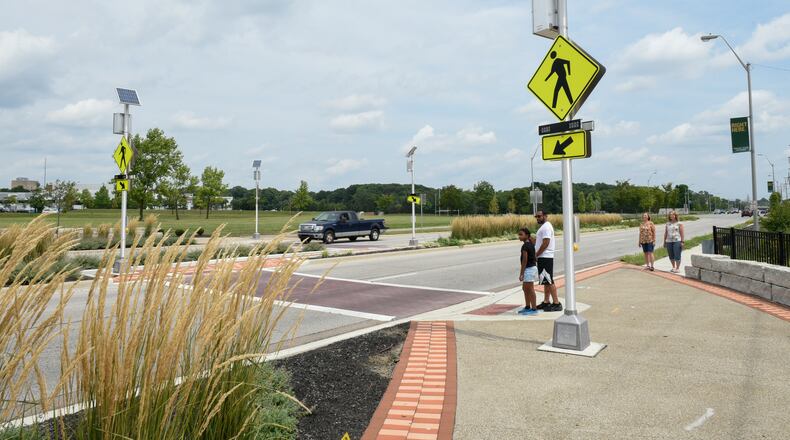Aging is an exciting journey for all of us
“Longevity advances tee up a life stage that could span three decades or more, creating new challenges to solve (financial, housing, healthcare, transportation) and new opportunities to seize (employment, volunteerism).
Happily, the Miami Valley region is a step ahead in preparing for this modern elder surge. Thanks to the Miami Valley Regional Planning Commission and The Dayton Foundation, civic and nonprofit leaders are collaborating regularly to identify innovations best poised to support happy and healthy aging for all generations. Twelve communities are currently enrolled in the Miami Valley Age-Friendly Network (MVAFN), with more joining us soon.
Further, the Coalition of Age-Friendly Communities in Ohio (CAFCO) facilitates collaboration statewide among the 31 Ohio communities currently enrolled in the AARP Age-Friendly program.
“It takes a village” might sound trite, but it’s an apt description for the crucial work being advanced by many champions throughout our state and region.”
- Read more from contributor Donna Kastner
Del Mar Encore Fellows help make Greater Dayton more “Age-Friendly”
“From one corner of Greater Dayton to another, positive change is happening all around us. Thanks in part to our more than 4,100 donors, who last fiscal year granted more than $124 million, nonprofit organizations are receiving support to change lives for the better. To highlight this work, we’d like to feature efforts that are inspiring change and the community changemakers who are behind this work.
One such effort is the Del Mar Encore Fellows Initiative, made possible by the DMH-Dayton Fund, which employs the talents of skilled, older adults to address emerging and critical needs throughout the community and change the conversation around aging. This effort is important particularly in light of a nationwide trend, which, according to AARP, estimates that people age 65 or older will outnumber children age 17 or younger by 2034, a milestone Montgomery County already has reached.”
- Read more from contributor Mike Parks
Empowering older adults in the fight against elder abuse
“The National Council on Aging estimates that approximately 5 million older adults are abused every year in the United States yet only one in 14 cases is reported. Research findings estimate that older victims of financial fraud lose roughly $30 billion a year.
For older adults, defending against such abuse begins with awareness. Identifying potential frauds and cons such as lottery scams, identity theft, or email phishing schemes is crucial. Older people should be wary of unsolicited calls and emails, particularly those requesting personal information, money transfers, or unusual payment methods such as gift cards and any of these requests that are communicated with extreme urgency.
The use of technology can also help people safeguard their financial assets. Enabling bank alerts for large transactions, using apps with real-time tracking of account activity, and setting up direct deposits for checks can minimize potential abuse. Equally pivotal is safeguarding essential documents and updating estate planning documents regularly.
Staying connected with family, friends, and community can deter potential abusers. However, social isolation became a growing issue for many older adults, especially during the pandemic. It’s crucial for all people across our lifespan to leverage technology to maintain relationships and stay active within our communities, reducing the risk of exploitation significantly.”
About the Author




